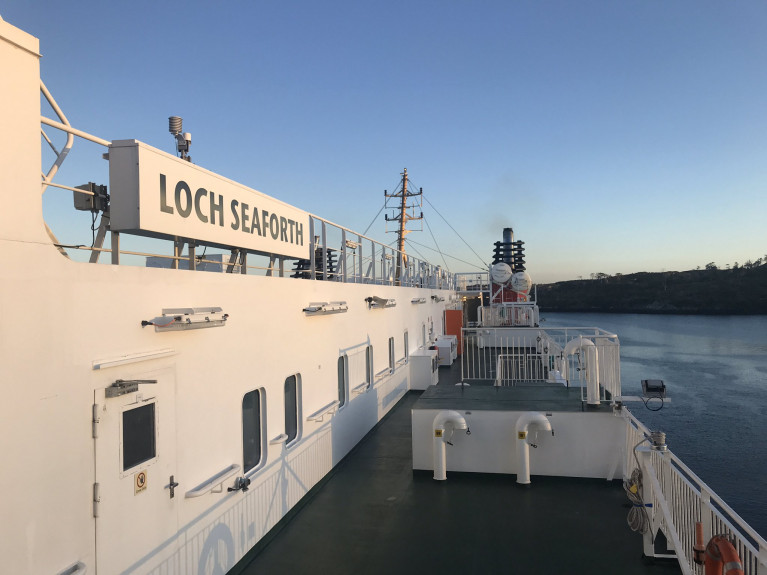Displaying items by tag: CalMac Contract
Should Scotland's Government Owned Ferry Operator CalMac be Given a Permanent Contract? - See Online Poll
Scottish Government owned ferry operator, Caledonian MacBrayne (CalMac) is considering providing a permanent public contract to run its own ageing fleet to west coast islands.
An uncontested direct award, The Herald writes, to the state-owned operator CalMac by Ministers’ is to be the preferred option for the next contract over the future of islands’ lifeline ferry services.
CalMac has an extensive network of routes and their fleet is the largest domestically operating within UK waters.
Currently, CalMac’s eight year contract, worth £975m covers serving the Clyde and Hebrides Ferry Services contract which is to expire in less than a year, September 2024.
It has now emerged that ministers in Holywood, the Scottish parliament in Edinburgh, have a permanent contract on the agenda, this would however close the door on opening routes up to private operators.
So how did the readers’ of The Herald respond to their online poll (which is now closed) with the question:
Should Caledonian MacBrayne be given a permanent contract? Yes OR No
For further coverage and to find out the result, click this 'link' to the newspaper.
Jobs Concern as Scottish Operator's £29m Contract Awarded to Irish Sea Shipyard Over Clyde Firm
Scottish Government-owned ferries will undergo a £29m maintenance contract which been given to Mersey-based Cammell Laird over Dales Marine, which operates in the Garvel Dry Dock in Greenock on the Clyde.
The decision has sparked concern over the impact on jobs at the dry dock in Greenock, which employs more than 50 staff.
The new contract is the first of a £58m deal to maintain and overhaul the CalMac vessels.
It will see work carried out on the CalMac fleet serving west coast islands - including MV Lochnevis, MV Hebridean Isles, MV Isle of Mull, MV Isle of Arran, MV Caledonian Isles and MV Isle of Lewis. More here reports The Scotsman.
Afloat adds CalMac's largest ferry, MV Loch Seaforth (see Irish Sea trials) which operates Ullapool-Stornoway on the Isle of Lewis (Outer Hebrides) is currently dry-docking at the English shipyard having arrived last week.
A pair of relief ferries in the form of the aforementioned MV Isle of Lewis and MV Hebridean Isles are maintaining the route.
Loch Seaforth has accommodation for 700 passengers and 143 cars and 20 trucks was built by Flensburger Schiffbau-Gesellschaft (FGS). This is the same German shipyard that built Irish Ferries much delayed cruiseferry W.B. Yeats which made a debut in 2019 and is currently operating Dublin-Holyhead during the winter.
It is in the north Wales port from where as Afloat reported last week, the Cammell Laird built polar research ship, RRS Sir David Attenborough is to undergo technical sea trials.
As for the overall CalMac fleet is to see significant improvements during the dry docking maintenance programme to each of the company's 34 ferries involving a range of upgrades.
In the case of MV Loch Seaforth this will be the fitting of an additional 40 internal seats whereas an improved Fast Rescue Craft and cranes are being added to MV Isle of Lewis and Hebrides. Both these ferries are also receiving new disabled bathroom and changing facilities.






























































